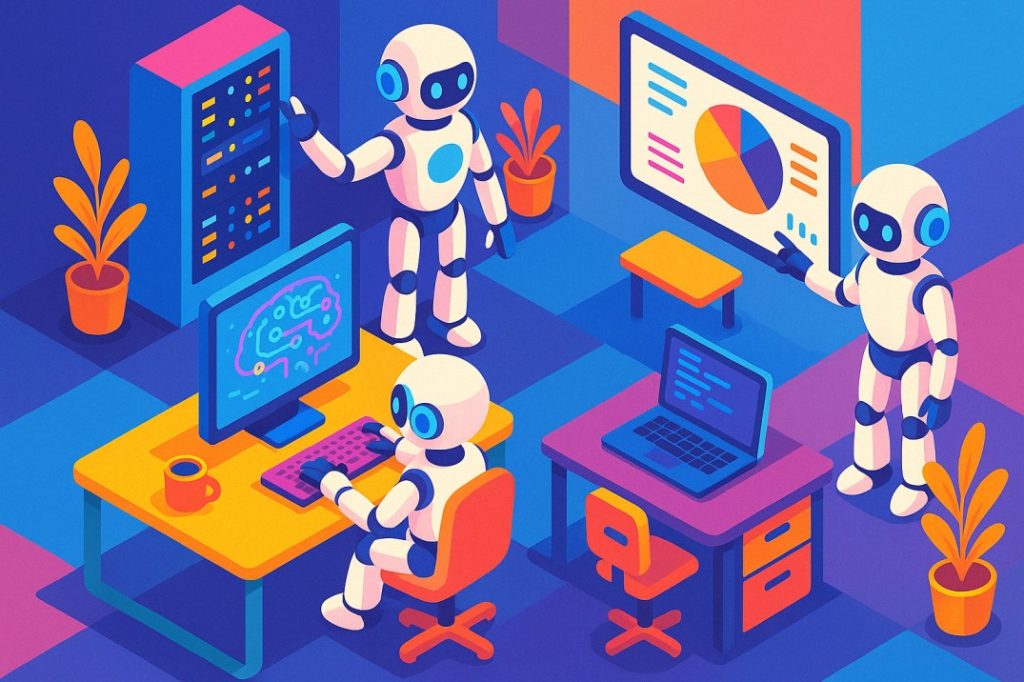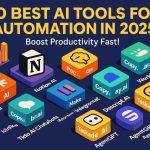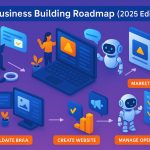Introduction: A New Era of Intelligent Business
The future of AI in business is no longer a distant vision—it’s unfolding right now, and 2025 will be a pivotal year. From automating complex workflows to revolutionizing customer experiences, artificial intelligence is rapidly becoming the core engine of digital transformation.
But with so many innovations emerging, which ones truly matter? Let’s cut through the noise and dive into seven AI trends that are not just buzzworthy but mission-critical for business growth in 2025.
1. Autonomous AI Agents Are Taking Over Repetitive Work
One of the most disruptive developments is the rise of AI agents—autonomous systems that perform tasks without human intervention. Think beyond chatbots: in 2025, AI agents will handle everything from customer service and lead generation to inventory tracking and HR onboarding.
🔹 Real-World Example: Companies like AutoGPT and AgentGPT are pioneering agent-based workflows, enabling businesses to automate entire project pipelines.
Why it matters:
- Cuts labor costs
- Increases operational efficiency
- Frees up human employees for strategic work
2. AI-Powered Personalization at Scale
Customers crave personalization, and in 2025, AI will deliver it like never before. Leveraging data from past interactions, location, browsing behavior, and even emotional cues, businesses will create hyper-personalized experiences across platforms.
🔹 Use Case: E-commerce stores will recommend products tailored not just to preferences but real-time moods, using sentiment analysis.
Benefits for businesses:
- Higher conversion rates
- Better customer loyalty
- More relevant marketing campaigns
🔗 Explore AI-driven personalization tools
3. Conversational AI is Becoming More Human
In 2025, Conversational AI won’t just answer FAQs—it will close deals, provide mental health support, and even serve as a virtual mentor. The advancements in LLMs (Large Language Models) mean interactions feel more natural, empathetic, and context-aware.
🔹 Example: Companies like Forethought are already integrating AI into customer support to automatically resolve tickets with minimal human oversight.
What’s evolving:
- Natural language understanding
- Emotional intelligence in dialogues
- Voice-based interactions and avatars
💬 See how Forethought AI handles support
4. AI and Low-Code/No-Code Platforms Empowering Entrepreneurs
No more waiting on developers. With AI-integrated low-code/no-code platforms, solopreneurs and small businesses can build and launch tools, apps, and automations in days—not months.
🔹 Example Tools: Glide, Zapier, and Bubble now offer AI-assisted automation, allowing anyone to build CRM tools, booking systems, or even mini SaaS businesses with drag-and-drop simplicity.
Why it’s powerful:
- Democratizes innovation
- Reduces cost of MVP development
- Encourages rapid experimentation
📌 Try building your app with Bubble
5. AI-Powered Cybersecurity on the Rise
As cyber threats become more sophisticated, businesses are turning to AI-based security solutions for real-time threat detection, anomaly tracking, and automated incident response.
🔹 Trend Insight: In 2025, AI will not only detect breaches but predict vulnerabilities before hackers can exploit them.
Key players:
- Darktrace
- CrowdStrike
- SentinelOne
🔐 Discover how Darktrace uses AI for threat detection
6. AI in Decision-Making: From Insight to Execution
Gone are the days of static dashboards. Today’s AI doesn’t just provide insights—it recommends actions and even implements them. Decision Intelligence tools combine machine learning with human inputs to create a hybrid model of smart decision-making.
🔹 Example: Google Cloud’s Decision Intelligence platform helps enterprises automate operations using data-driven insights.
Why it’s a game-changer:
- Minimizes decision fatigue
- Reduces errors
- Speeds up strategic planning
📊 Explore Decision Intelligence
7. Ethical AI and Transparency Take Center Stage
With great power comes great responsibility. As AI becomes more embedded in critical systems, ethical concerns—bias, data privacy, job displacement—are also under the spotlight.
🔹 What’s changing in 2025:
- Mandatory explainability of AI decisions
- AI audits in regulated industries
- Increasing demand for transparent AI models
What businesses should do:
- Use AI ethics checklists
- Involve diverse teams in AI design
- Be transparent with customers about AI use
📘 Read IBM’s AI Ethics Guidelines
Comparison Table: AI Trends & Their Business Impact
| AI Trend | Business Impact | Readiness in 2025 |
|---|---|---|
| Autonomous AI Agents | Saves time and boosts productivity | High |
| Hyper-Personalization | Increases customer retention | High |
| Human-like Conversational AI | Enhances customer experience | Medium |
| Low-Code AI Platforms | Empowers rapid innovation | High |
| AI-Powered Cybersecurity | Strengthens defense against threats | High |
| Decision Intelligence | Improves strategic operations | Medium |
| Ethical & Transparent AI | Builds trust and meets compliance needs | Emerging Priority |
Final Thoughts: Are You Ready for the AI-Driven Future?
The future of AI in business is not just about automation—it’s about transformation. The companies that embrace these trends today will be the market leaders of tomorrow.
Whether you’re a startup founder, marketer, or enterprise leader, understanding and applying these AI shifts can give you a serious edge. But remember, AI is only as powerful as your ability to use it wisely.
💡 What’s Next?
✅ Want more AI insights? Subscribe to our newsletter for weekly updates.
✅ Building a business? Explore our step-by-step AI guides.
✅ Got questions? Drop a comment below or contact us for a 1-on-1 session.
Let’s shape the future—together.




